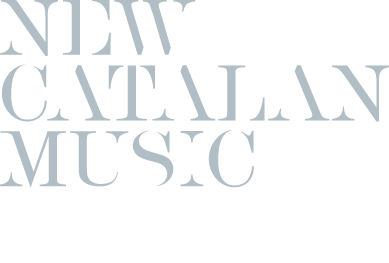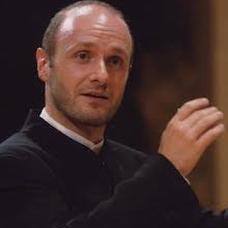Josep Vila
Contemporary music
(Josep Vila, Barcelona 1966)
Pianist, choir and orchestra conductor, composer, and arranger. He studied at the Conservatori Municipal de Música in Sabadell, where he completed his studies in piano. He went on to study composition under Benet Casablancas and Josep Soler at the Conservatori de Badalona, and then orchestra conducting under Salvador Mas at the conservatory in Barcelona. In the meantime, he also studied choir conducting under Manuel Cabero, Pierre Cao and Laszlo Heltay, and from 1995-1996 he studied in Sweden under Eric Ericson.
In 1990 he founded the lieder choir named Cor Lieder Camera de Sabadell and from 1991 to 1995 he was the conductor for the Coral Càrmina de Barcelona. In 1998 he became the conductor of Orfeó Català. As a composer, his work is especially devoted to vocal and instrumental music. Influenced by Bartok, Stravinsky and Shostakovich, his musical expression has drawn just as much from French impressionism as it has from more recent influences, such as the Swedish composer Ingvar Lidholm. It also follows an aesthetic leitmotif that, with elegance, vitality and sincerity, renovates the strong folkloric roots historically tied to the great Catalan choral tradition.
He is the author of a collection of thirty compositions for children’s choir, youth choir and piano, twenty works for an a capella mixed choir, three for choir and orchestra, and one for choir and organ. He has also written six cantatas and a suite for the cobla. One worth mentioning is Tedeum, for a mezzo, choir and orchestra, premiered in 2002 by the Orquestra Barroca Catalana and the Coral Polifònica de Vilafranca. There is also the outstanding El Mirador (2003), a symphony poem for orchestra and choir, and the cantatas El campaner de Taulí, with text by the poet Miquel Desclot, and finally, El motí, with text by Josep Pedrals, premiered during the educational festival Cantània 2008.
During the 2007-2008 season, he served as the conductor for the Cor de RTVE until 2010 and he currently is the main invited conductor. Since April 1998, he has been the conductor of the Orfeó Català and since September 2011, he has also been able to combine that post with being the head of the Cor de Cambra del Palau de la Música Catalana, as a result of the institution’s willingness to unify and grant more attention to its vocal ensembles. And so in July 2013, the Palau de la Música scheduled a concert where both ensembles performed Fauré’s Réquiem with the Berlin Philharmonic Orchestra, conducted by Sir Simon Rattle.
As a guest conductor, he has worked with orchestras such as the RTVE Española, Filarmónica de Málaga and Simfònica del Vallès, and with choirs such as the Capella de Santa Maria del Mar, Budapest Franz Liszt Academy and the 2010 World Youth Choir. He teaches choral conducting at the ESMUC.




 twitter
twitter flickr
flickr facebook
facebook RSS
RSS spotify
spotify youtube
youtube
